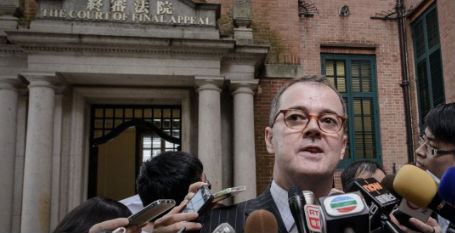Lawyer Michael Vidler and his client — the man who can only be identified as Q – said they will challenge the legislation as unconstitutional should it be passed, according to scmp.com.
Vidler said his client should not have to give up his “constitutional right” to leave his body unharmed in order to have the right to marry.
He pointed out that such a requirement was like telling all men that they had to undergo full adult male circumcision before they were allowed to marry. However, “what they’re asking of Q is a thousand times worse than that,” he said.
Female-to-male sex-change procedure is dangerous, life-threatening and could leave Q wearing diapers for the rest of his life.
Vidler said the bill should adopt guidelines based on Britain’s Gender Recognition Act. Hong Kong as a former Crown Colony is heavily influenced by British laws and legislation.
The 2004 British law acknowledges a person’s gender once they have adopted it for two years, without the need for a full sex-change operation. Q satisfies that requirement as he has been undergoing hormone replacement therapy for several years.
Hong Kong lawmakers are debating a new bill to amend a pre-existing government policy that transgender people must undergo full gender reassignment surgery to change their legal gender.
Its law currently allows a transgender person who has undergone gender reassignment surgery to change their gender status in legal documents such as the identity card and passport, but not the birth certificate.
The proposed bill follows the Court of Final Appeal ruling last year which granted a transgender woman named “W” the right to marry her boyfriend, saying a ban on marriage would be unconstitutional.
Hong Kong lawmakers say that the Court of Final Appeal “did not decide on the question of whether other transgenders or transsexuals who have not received [a sex-change operation] may also qualify to marry in their preferred sex.”
The government argues that such unions would constitute a same-sex marriage, which is illegal in Hong Kong.
Vidler is of the opinion that despite the Legislative Council’s legal advisers warning the government that the proposed legislation was unconstitutional, it had gone ahead with the bill because of an inordinate influence of evangelical Christians who oppose same-sex marriage.

